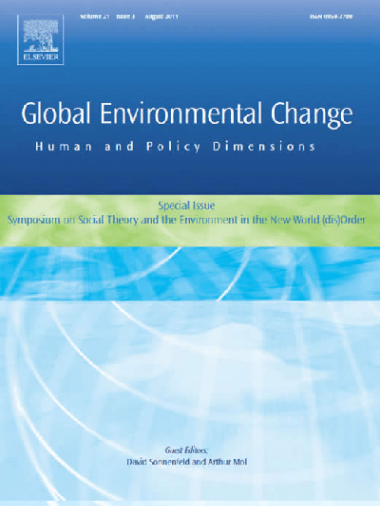Emerging meta-organisations and adaptation to global climate change: Evidence from implementing adaptation in Nepal, Pakistan and Ghana

As developing countries move from policy to implementing adaptation to climate change, formal operational structures are emerging that exceed the expertise of any one actor. We refer to these arrangements as ‘meta-organisations’ that comprise many autonomous component organisations tackling adaptation. The meta-organisations set standards, define purposes, and specify appropriate means-ends criteria for delivering adaptation. Using empirical data from the three cases, Nepal, Pakistan and Ghana, the study identifies and analyses six attributes of the meta and component organisational structures. We argue that organisational structures are crucial to understanding adaptation, specifying policy and implementation. Our analysis demonstrates that while each country promotes similar objectives, the emerging structures are quite distinct, shaped by country-specific attributes and issues that lead to different outcomes. Nepal’s priority for a formal process has come at the cost of delayed implementation. Pakistan’s devolved approach lacks legitimacy to scale up the process nationally. Ghana’s use of existing decentralised structures and budgets relegates adaptation below other development priorities. These divergent structures arise from the different needs for legitimacy and accountability, and the relative priority attached to adaptation against other needs.
Citación
Chaudhury AS, Ventresca MJ, Thornton TF, Helfgott A, Sova C, Baral P, Rasheed T, Ligthart J. 2016. Emerging meta-organisations and adaptation to global climate change: Evidence from implementing adaptation in Nepal, Pakistan and Ghana. Global Environmental Change 38:243-257.